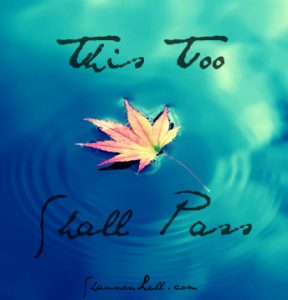Surviving September

By Melanie Richards
I love what I do with a passion. Leading yoga teacher trainings, giving talks and teaching for fundraisers, festivals and the upcoming Expo Yoga is a dream come true – one that I worked hard for and that also takes up most of my weekends from September to June. For this reason, it’s very important for me to recharge by taking as much vacation time and long weekends off as possible during the down-season of summer. This year, I had also set the intention of expanding my horizons and experiencing new things outside my yoga bubble.
Mission accomplished: I travelled through Italy, learning Italian and soaking up the history, art and culture; canoe camped for the first time and saw a moose (!); took road trips every weekend to visit friends in the country and enjoyed some once-in-a-lifetime concerts. It truly was a magnificent summer…
…And when September hit, I felt exhausted. At the same time that I set the intention to make the most of every single second of every single day for two months, I also set an unrealistic expectation of being well rested, fully charged and raring to go by September first. Instead, I felt scattered and slow which in turn lead to feelings of guilt, frustration and sadness. I wasn’t ready for summer to end – something commonly referred to as the “September Blues”.

Looking around, I saw that I wasn’t the only one who felt this way. My friends who are mothers were dealing with the back-to-school frenzy and my students at the studio were asking for help to get grounded and focused. With few exceptions, everyone I spoke to lamented the passing of our most beautiful summer in recent memory.
On the other hand, September brings with it the promise of exciting projects and new beginnings; starting a new routine can feel refreshing, invigorating and motivating. We just have to remember that all transitions – even the most positive ones – take time and can be stressful, which is why it’s so important to navigate change mindfully.
Mindfulness, according to the founder of the Mindfulness Based Stress Reduction program at the University of Massachusetts Medical Centre, Jon Kabat-Zinn, means paying attention in a particular way: on purpose, in the present moment and non-judgmentally. In other words, observing reality as it is with awareness and equanimity. This requires patience and huge amounts of understanding and self-compassion. Have you ever looked back on a stressful time in your life and in hindsight wished you hadn’t been so hard on yourself? Mindfulness helps us take that step back and see the bigger picture as it’s happening.
It also puts us in touch with the law of impermanence. What we observe is that everything is always changing and that the root cause of our suffering is our resistance to that change. Trying desperately to control the things that are completely outside our control, like the inevitable ending of summer, won’t stop the fall from coming but it will sap our energy and leave us feeling drained because we’re fighting a battle we know we cannot win.
I realized that my exhaustion at the beginning of September actually had little to do with physical fatigue and everything to do with my resistance to hunkering down with work after the high of my summer adventures. The feelings of guilt and anxiety that came with that resistance only made it worse. However, the second I took a step back and mindfully observed what was happening without judgment, I felt an instant wave of relief and empathy for myself.
Now we are more than half way though September and the routine is setting in for most of us (as we always knew it would), yet it is still important to take some perspective everyday and breathe; observe; let go. Appreciate and be fully present to the good times and each beautiful moment because you know they will not last. Do not fear the hard times because you know they will not last, either. Embrace change and give yourself the time, space and empathy to navigate it. Above all, love yourself through it all.

